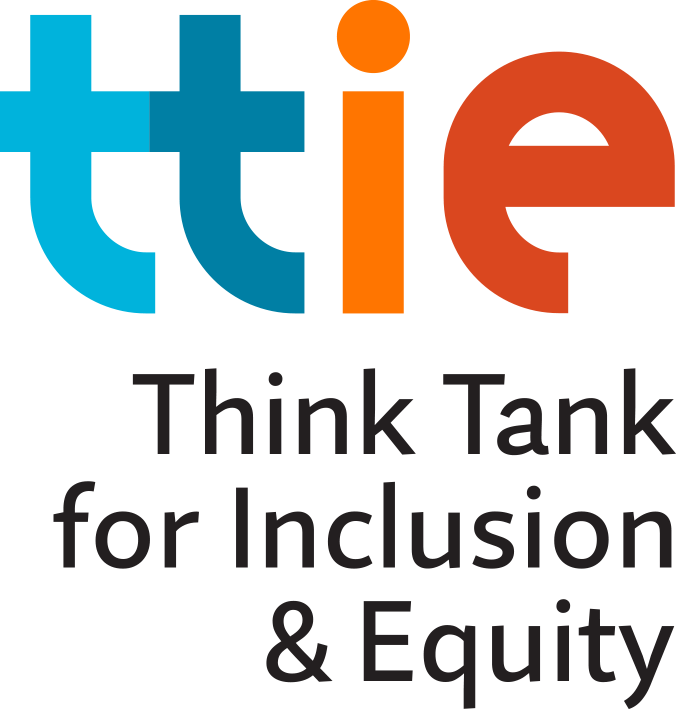An umbrella term for the the asexual and/or aromantic spectrums. This includes anyone who experiences little to no romantic and/or sexual attraction (e.g., asexuals, aromantics, graysexuals, demisexuals). More on some of the many a-spec identities here.
Practices and beliefs that assign inferior value to those with developmental, emotional, physical/ sensory, or psychiatric disabilities.
Though there are fathers of all races and ethnicities who have minimal presence in their children’s lives, “absentee” isn’t used to describe most of them, just Black ones. In reality, CDC data shows Black fathers are more likely than other dads to be with their children on a daily basis.
The decision to and/or practice of not partaking in sexual activity, typically for a limited period of time (e.g., until marriage). Unlike asexuality, which is a sexual orientation that describes a lack of sexual attraction, abstinence is a behavior.
A set of policies and practices within a government or organization seeking to include particular groups based on their gender, race, religion, or nationality in areas in which they are excluded in the past such as education and employment.For myths and facts on affirmative action, see the ACLU Racial Justice Program, ACLU Human Rights Program, and the African American Policy Forum’s factsheet.
A voluntary, affirmative, and conscious mutual agreement among all participants through words or nonverbal actions that create clear permission regarding willingness to engage in the sexual activity (i.e., “yes means yes”). Consent may be withdrawn at any time. Consent cannot be given when it’s the result of coercion, intimidation, force, threat of harm, or when a person is incapacitated (e.g., by drugs or alcohol, not awake or fully awake).
The dispersal of millions of people of African origin all over the world, especially in Europe and the Americas. The largest populations descended from those forcibly transported from Africa are in Brazil, which, though not precisely listed in census returns, may be as high as 90 million – about half of Brazil’s entire population in 2010. Other similarly descended populations include approximately 40 million in the Caribbean, 40 million in the U.S., and many millions more in other countries. Roughly 4 million more enslaved Africans were taken to Brazil than to any other country. Slavery lasted longer in Brazil than in other countries, not being finally abolished until 1888. - Understanding Slavery Initiative
Black Latinx people who refer to themselves in varied, nuanced ways. For instance, those from Latin America and the diaspora self-identify using terms including, but not limited to, Black Latinx (“negro(a)/x” in Spanish), Afrodescendant (“afrodescendiente” in Spanish), and Afro Latinx.
The stereotyping, prejudice, and/or discrimination against people based on their age (across all ages). Ageism affects all aspects of our society, from the workplace (e.g., being fired from a job because of age) to healthcare (e.g., not being taken seriously by doctors because of age).
A person who does not experience or express any gender (while most non-binary identities typically do have a gender, just one that isn’t binary). For more.
Arabic word for God. Allah is the same God worshiped by adherents of Christian and Jewish faiths. In dialogue, Muslims speaking English and referring to God should say “God,” not “Allah.”
The opposite of asexual; someone who regularly experiences sexual attraction toward other people.
The Amazigh people (22-40 million) inhabit a territory spanning most of North Africa, from the Mediterranean and Atlantic coasts up to the Sahel. Since the 20th century, it also has had a substantial presence in Europe through the Amazigh diaspora. North Africa’s 25 million Amazigh (so-called Berbers) have long struggled to preserve their identity. Originally spread across the south of the Mediterranean, the majority have lived in Algeria and Morocco for thousands of years but have been denied the right to inhabit their culture and speak their language for centuries. Amid a long history of colonial suppression is the desire to no longer be referred to as Berbers but as Amazigh, meaning "free people,” and for their language to be known as Tamazight. Though these issues are still being hotly debated between the people concerned and those wielding power, progress has been made. Find more here.
An offensive term often used to refer to a child born to a non-citizen parent under the assumption the child will provide them a path to securing citizenship or legal residency.
A gender expression that contains physical elements of both masculinity and femininity or neither.
Note: Androgyny is a form of gender expression (how someone outwardly expresses their gender), not a gender identity (their innate sense of gender). While some non-binary people have an androgynous gender expression, others do not; androgyny is not a requirement to be or synonymous with non-binary.
Arabs are people who identify as being from one of the 22 Arab League Nations (see below) who share a common language, history and culture. Arabs are also one of many ethnicities that practice Islam. But not all Arabs are Muslim; 7% adhere to other religions (e.g., approximately 5% of Arabs are Christian; approximately 63% of U.S. Arabs are Christian, 24% Muslim, 13% are other or have no religious affiliation).
The centrally planned and systematically executed deportation and murder of 2 million+ Christian Armenians, Greeks, and Assyrians by the Ottoman Turkish government from 1915-1923.
A person who experiences little or no romantic attraction. Aromantics might or might not experience sexual attraction. For more.
Medications that treat or prevent the spread of HIV. Antiretroviral therapy (ART) medication treats and manages HIV in HIV+ people. Pre-exposure prophylaxis (PrEP) and post-exposure prophylaxis (PEP) are used by HIV- people at risk of getting HIV through sex or injection drug use. When taken correctly, these medications can make HIV+ people undetectable (i.e., reduce the amount of HIV in the body to untransmittable levels) and prevent the spread of HIV. For more.
A person who experiences little or no sexual attraction (to people of any gender).
